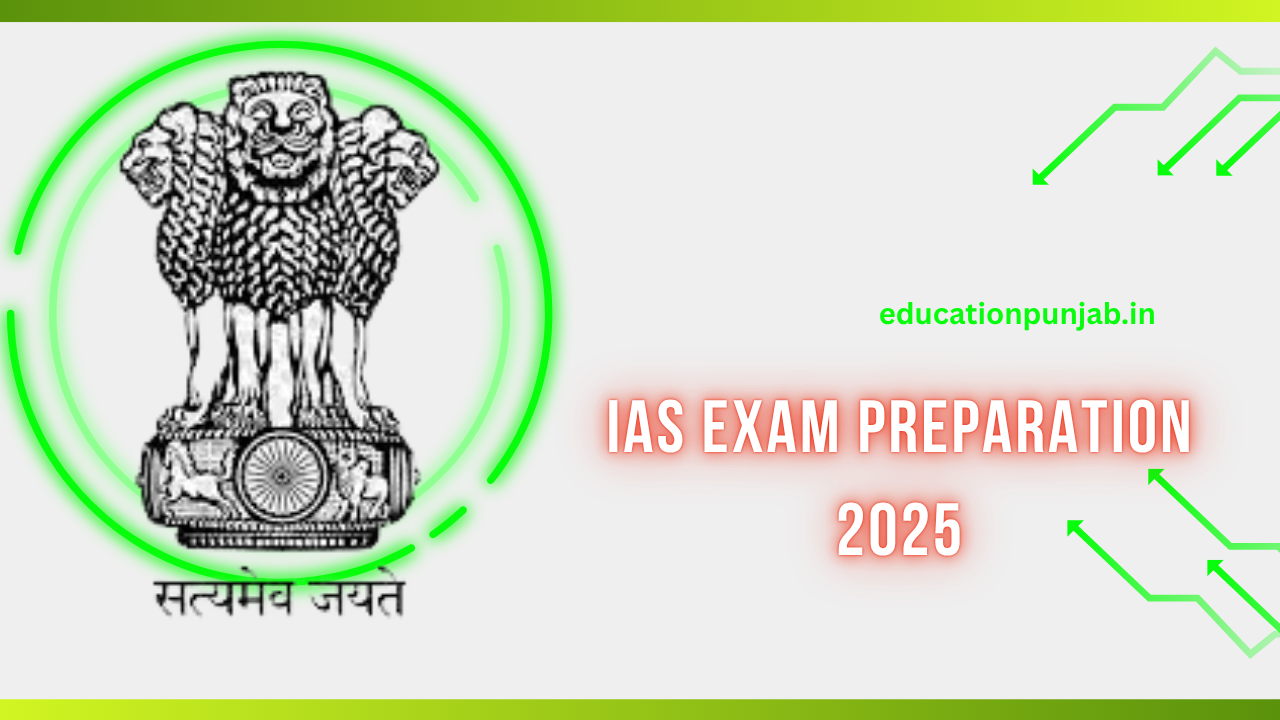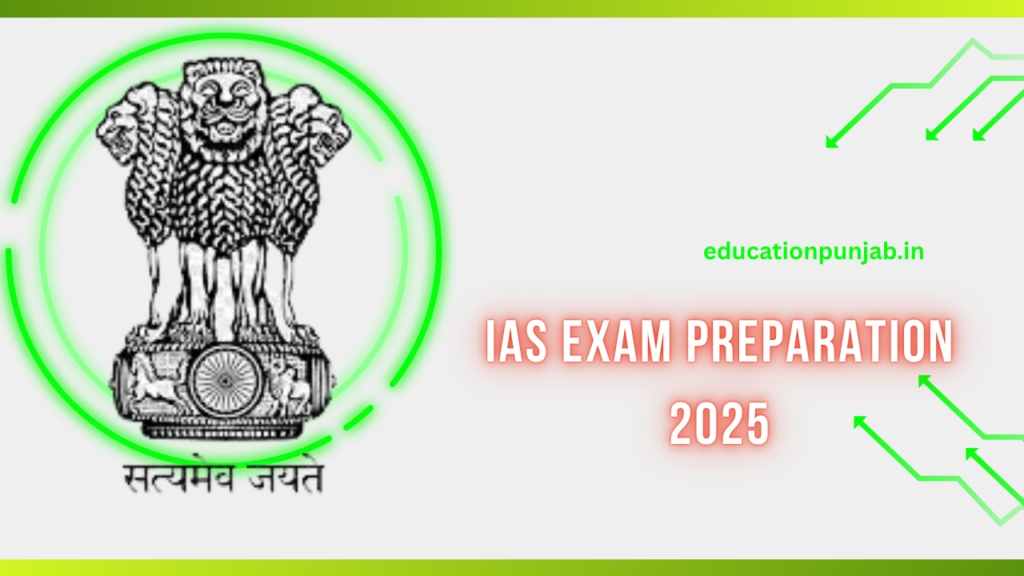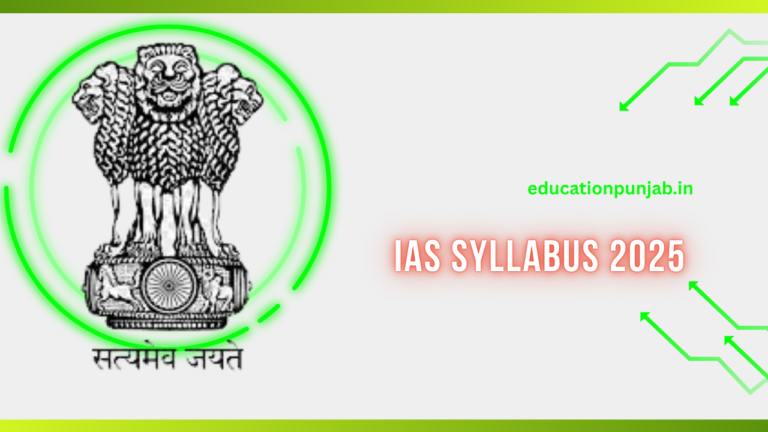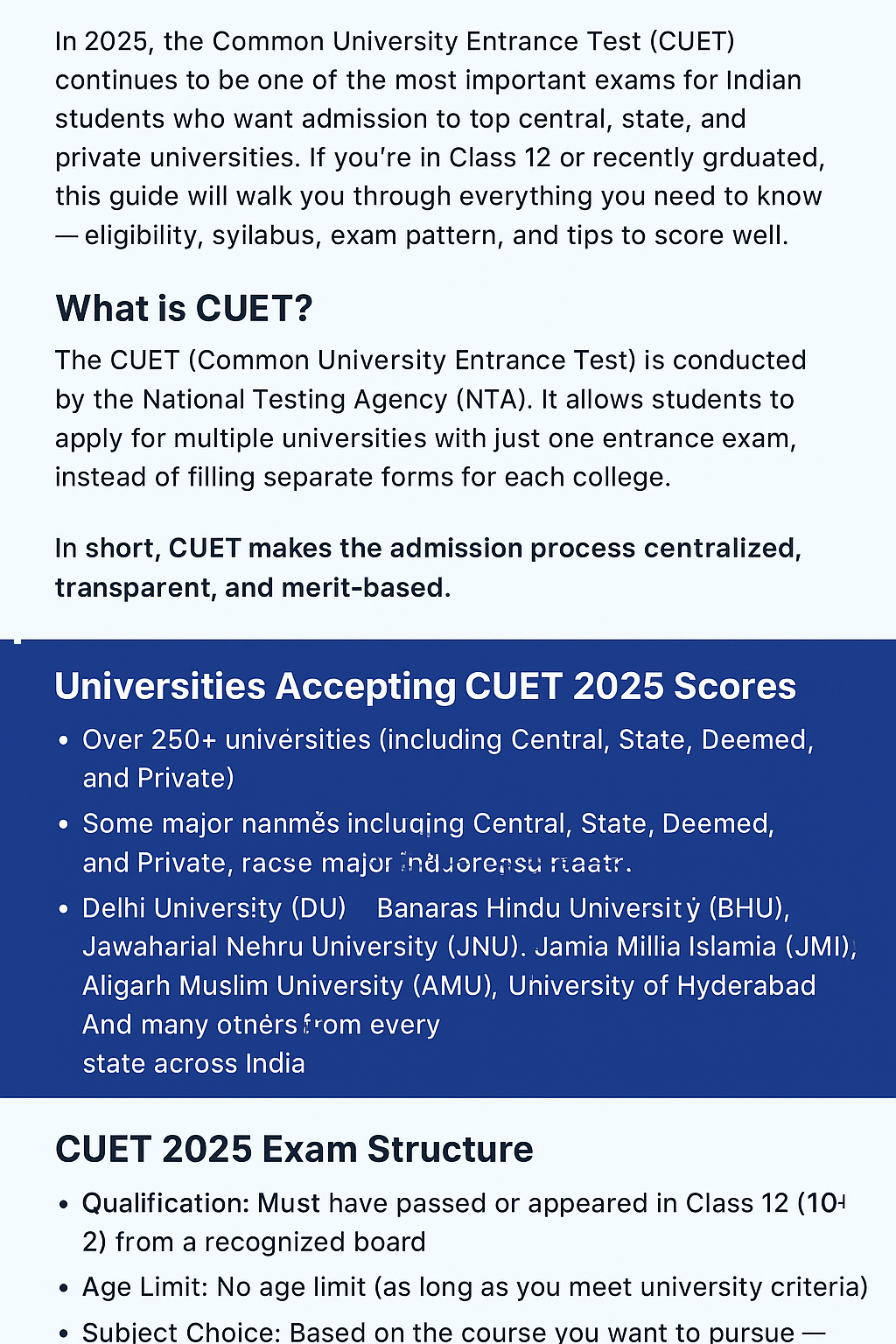
IAS Exam Preparation 2025

IAS Exam Preparation 2025: Preparing for the UPSC Civil Services Examination (CSE), commonly referred to as the IAS exam, is a challenging yet rewarding journey. The exam, conducted by the Union Public Service Commission (UPSC), consists of three stages: Prelims, Mains, and Interview (Personality Test). Below is a structured guide to help you prepare effectively, tailored for beginners and based on insights from reliable sources.
1. IAS Exam Preparation 2025– Understand the Exam Structure and Syllabus
- Preliminary Exam:
- Two objective-type papers:
- General Studies Paper I: Covers history, geography, polity, economy, environment, science, and current affairs (200 marks).
- CSAT (Paper II): Tests comprehension, reasoning, and numerical ability (200 marks, qualifying with 33% minimum).
- Purpose: Screening stage; only GS Paper I marks count for cutoff.
- Mains Exam:
- Nine subjective papers:
- Two qualifying papers: English and a regional language (300 marks each).
- Seven merit-based papers: Essay, GS I-IV (covering history, geography, polity, economy, ethics, etc.), and two optional subject papers (250 marks each).
- Total: 1750 marks.
- Interview: Personality test (275 marks) assessing suitability for civil services.
- Syllabus: Thoroughly review the UPSC syllabus for Prelims and Mains to prioritize topics.
Tip: Familiarize yourself with the exam pattern and syllabus early to focus your preparation. Avoid ignoring CSAT, as it can prevent you from advancing despite strong GS performance.
2. IAS Exam Preparation 2025– Create a Study Plan
- Timeframe: Typically, 1–2 years of dedicated preparation is recommended, though intensive 6-month plans can work for disciplined candidates.
- Daily Schedule:
- Allocate 6–8 hours daily, balancing static subjects (history, polity, etc.) and current affairs.
- Divide time: 40% static syllabus, 30% current affairs, 20% practice (mock tests/answer writing), 10% revision.
- Prioritize:
- Start with NCERT textbooks (Class 6–12) for foundational knowledge in history, geography, polity, economy, and science.
- Focus on Mains preparation early, as it overlaps with Prelims topics, ensuring an integrated approach.
- Revision: Dedicate the last 15–20 days before Prelims to revision. Make concise notes for quick recall.
Tip: Create a flexible, realistic timetable and stick to it. Set small, achievable goals to stay motivated.
3. IAS Exam Preparation 2025 – Recommended Study Resources
Books:
- NCERTs: Start with NCERTs for clear, reliable basics.
- Standard Reference Books:
- History: India’s Struggle for Independence by Bipan Chandra, A Brief History of Modern India by Spectrum.
- Polity: Indian Polity by M. Laxmikanth.
- Economy: Indian Economy by Ramesh Singh.
- Geography: Certificate Physical and Human Geography by G.C. Leong.
- Environment: Environment and Ecology by Shankar IAS Academy.
- General Science: Lucent’s General Science.
- Current Affairs:
- Newspapers: The Hindu or The Indian Express.
- Magazines: Yojana, Kurukshetra, or monthly compilations like Vision IAS or BYJU’S Current Affairs Magazine.
- Optional Subject: Choose based on interest, academic background, and resource availability (e.g., sociology, public administration, geography). Refer to previous years’ question papers for guidance.
IAS Exam Preparation 2025 – Online Resources:
- Free Platforms:
- ClearIAS: Free notes, mock exams, and guidance.
- InsightsIAS: Daily current affairs, quizzes, and answer writing practice.
- Drishti IAS: Study material, test series, and YouTube videos.
- BYJU’S Free IAS Prep: Notes, video lectures, and MCQs.
- Test Series:
- Join reputable test series like Vision IAS, NEXT IAS, or InsightsIAS for Prelims and Mains practice.
- YouTube: Channels like Drishti IAS English or Unacademy UPSC for topic explanations.
Tip: Limit resources to avoid information overload. Stick to 1–2 reliable sources per subject and revise them thoroughly.
4. IAS Exam Preparation 2025– Focus Areas and Strategies
- Current Affairs:
- Read newspapers daily and categorize news (e.g., government schemes, international relations).
- Use monthly magazines or online platforms for consolidated updates.
- Prelims Preparation:
- Solve previous years’ question papers (PYQs) to understand question patterns.
- Take mock tests to improve speed, accuracy, and exam temperament.
- Focus on CSAT if weak in comprehension, reasoning, or math. Consider CSAT-specific courses if needed.
- Mains Preparation:
- Practice answer writing daily to develop clarity and conciseness (aim for 7-minute answers).
- Use platforms like InsightsIAS Secure or Drishti IAS for answer writing challenges.
- Analyze toppers’ answer sheets (e.g., Testbook’s UPSC Mains Model Answers).
- Interview:
- Develop a well-rounded personality by staying updated on current issues and practicing mock interviews.
- Focus on communication skills and confidence.
Tip: Start answer writing early to build skills for Mains. Avoid over-relying on coaching; self-study with discipline is sufficient.
5.IAS Exam Preparation 2025 – Time Management and Mental Health
- Time Management:
- Break the syllabus into manageable chunks and set weekly targets.
- Prioritize high-weightage topics (e.g., polity, economy) and revise regularly.
- Mental Health:
- Stay motivated by setting small goals and taking breaks to avoid burnout.
- Engage in physical activities or hobbies to maintain balance.
- Avoid unnecessary discussions or social media distractions.
Tip: Mock tests help manage exam-day anxiety. Practice under timed conditions to build mental resilience.
6. Optional Subject Selection
- Choose a subject you’re passionate about and have access to resources for.
- Popular choices: Sociology, Public Administration, Geography, History.
- Analyze previous years’ question papers and syllabus to ensure sustained interest.
7. Additional Tips for IAS Exam Preparation 2025
- Coaching vs. Self-Study: Coaching is optional. Many candidates clear UPSC with self-study using online resources, NCERTs, and standard books.
- Mock Tests: Essential for Prelims (to improve accuracy) and Mains (to refine answer writing). Join a test series early.
- Consistency: Study daily, revise weekly, and stay disciplined.
- Avoid Common Mistakes:
- Don’t collect excessive resources; focus on quality.
- Don’t neglect CSAT or regional language papers, as they can lead to failure.
- Don’t waste time on irrelevant discussions or outdated material.
8. Timeline for 2025 Exam
- Prelims: Likely in May/June 2025. Focus on GS Paper I and CSAT now, with intensive revision in April–May.
- Mains: Likely in September 2025. Start answer writing practice by January 2025.
- Interview: February–April 2026. Prepare after Mains results.
Tip: Check the UPSC 2025 notification (released January 22, 2025) for exact dates and apply via the UPSC OTR portal.
9. Recommended Platforms for Free Resources
- ClearIAS: Free notes, mock tests, and e-books.
- Drishti IAS: Free study material, current affairs, and YouTube content.
- InsightsIAS: Free daily current affairs, quizzes, and answer writing practice.
- BYJU’S Free IAS Prep: Free notes, MCQs, and video lectures.
- Testbook: Free study material, test series, and model answers.
- UPSC Exam Notes: Comprehensive test series and notes.
10. Motivation and Perseverance
- The IAS exam is tough due to its vast syllabus and competition, but systematic preparation makes it achievable.
- Learn from toppers’ strategies and stay inspired by their journeys.
- Stay patient and persistent; success requires consistent effort over time.
Tip: Join online study groups for support, but avoid distractions.






1 thought on “IAS Exam Preparation 2025. Ultimate Guide, Tips, Strategies, and Resources”
Comments are closed.